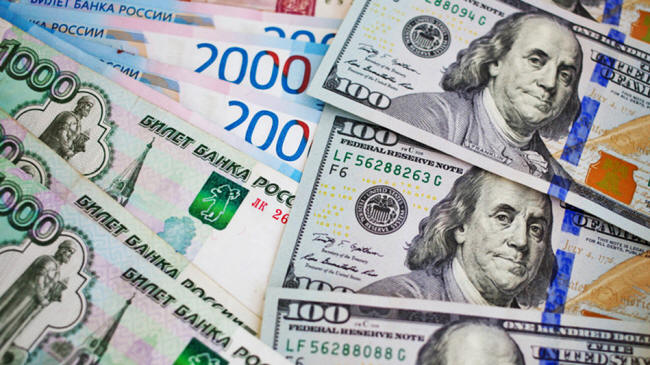|

by Jonny Tickle
September
03, 2021
from
RT Website

© Getty Images / Irina Tiumentseva
The world might face a financial disaster comparable with the
2008-2009 crisis because of
problems accumulated over the last 18 months, which are a byproduct
of measures implemented by governments to battle the spread of
Covid-19.
That's according to the Central Bank of Russia, which
published a Monetary Policy
Guidelines draft report on Wednesday.
According to the
institution, the world economy could enter a crisis scenario due to
both the increase of global debt held by countries and the
increasing number of companies with weak financial soundness.
According to the draft, the bank has developed four separate
scenarios for the near future, up to 2024.
According to its
so-called 'baseline' scenario, a recession is avoided as countries
achieve their vaccine targets and advanced economies shift
toward monetary policy normalization.
However, the other three possible scenarios paint a decidedly
grimmer picture.
-
In the first
instance, the 'pandemic' worsens significantly causing an
economic crash worldwide.
-
In the second,
the 'pandemic' improves, but problems accumulated over the
'pandemic' deteriorate the economic situation considerably
causing a rise in inflation.
-
In the third,
monetary policy normalization by advanced economies is
accompanied by unsteady dynamics in financial markets,
causing a lack of confidence in investors.
This third one, is the
worst of the three negative scenarios, the bank says.
Russia's economy is suffering from stubbornly high inflation, which
currently sits at 6.5%, and has been blamed for eating significantly
into living standards in the country ahead of upcoming parliamentary
elections.
In July, Central Bank of Russia Governor
Elvira Nabiullina revealed that
the institution would be hiking its rate to match its key interest
rate to the 6.5% annual inflation rate in a bid to encourage saving
and discourage borrowing.
The bank wishes to get
this figure down to the publicly announced target of 4%.
| 

